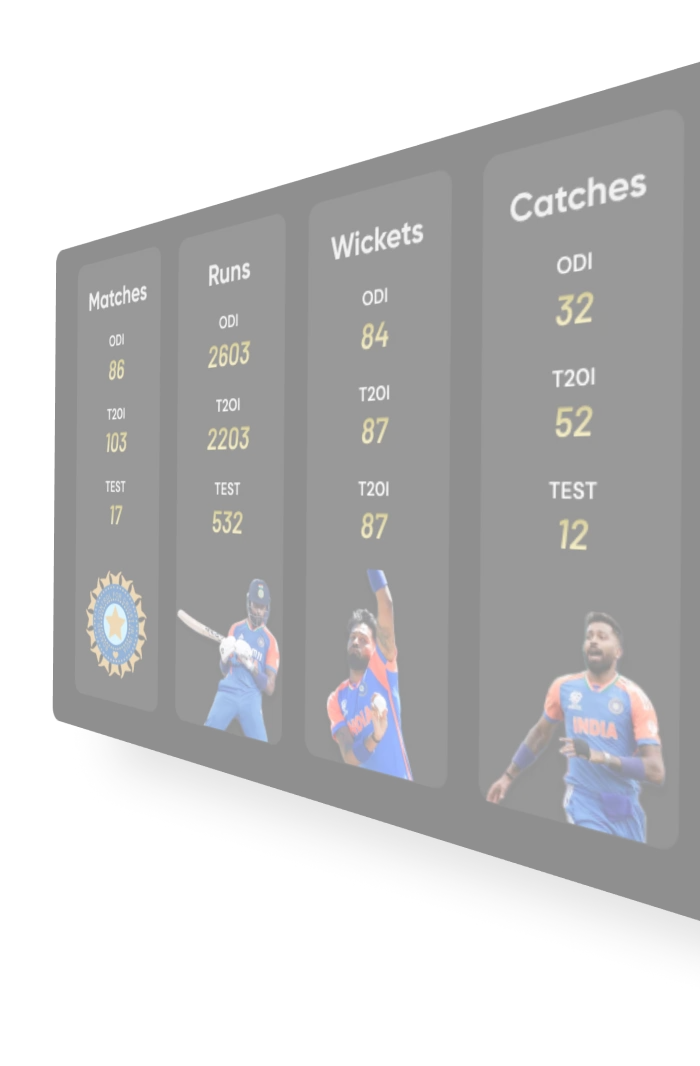
Table Of Contents
After defeating Sri Lanka, Bangladesh brought Pakistan to its knees in their home. The first match of the three-match series was played in Dhaka. Pakistan's team collapsed for 110 runs. Taskin Ahmed and Mustafizur bowled tightly. Mustafizur in particular took two wickets for just six runs in four overs - the most economical bowling in Bangladesh's T20I history.
In reply, Parvez Emon scored 56 runs and led the team to victory in just 15.3 overs. His confidence and the hard work of the bowlers destroyed Pakistan's strategy.
The second match was even more special. It was a low-scoring match. Despite a low score, Bangladesh left Pakistan behind and won the series. This was the same Pakistan that had defeated Bangladesh 3-0 in Lahore this year, but this time the story changed. The pitches of Dhaka kept turning, the bowlers kept weaving a web, and Pakistan kept getting entangled in it.
Bangladesh's biggest strength is their bowlers, who are becoming spin and slow-wicket specialists. The trio of Mahedi Hasan, Rishhad Hussain, and Mustafizur kept the opposition batsmen in check. Instead of fast bowling, they broke the rhythm of the batsmen with turn, variation, and slower deliveries. Their bowlers took full advantage of the turning track of the Sher-e-Bangla Stadium.
This change did not come suddenly. For the last few years, Bangladesh has given priority to spin in domestic cricket. Young bowlers have been brought forward by adapting them to these conditions.
Liton Das is no longer just an opener; he has become the pivot of the team as captain. Tanjid Hasan's explosive batting, Shamim Hussain's aggression, and Tauheed Hridoy's stability have created a balanced top order. This is no longer a team of one or two players; now, in every match, a new face comes forward and brings victory.
While earlier Bangladesh looked weak in chasing targets or handling pressure, now they seem to dominate in crucial moments; especially the second T20 win against Pakistan is proof of this change.
Bangladesh's record against Pakistan was shameful - only 3 wins out of 22, but this time they shattered that record by taking a 2-0 lead in the series. It was not just a win; it was the end of a mental block. A team that often used to bow down to Pakistan was now defeating them, not just competing with them.
These victories will have the greatest impact on the young players. They no longer consider themselves limited. They know that if they adopt patience, courage, and smart strategy, then no team in the world is big enough for them. Youngsters like Rishad, Tanjid, and Shamim have now started to make their presence felt on the big stage.
The Bangladesh Cricket Board has also taken concrete steps in this direction. Domestic cricket has been strengthened. Young players are being sent to foreign leagues to gain experience, and now the results are out.
After these victories, Bangladesh is no longer just an 'outsider' team. Now they cannot be taken lightly in T20 cricket. They have not only shown technical improvement, but have also become mentally strong.
The 2026 T20 World Cup is near. If this team continues in this form, they can leave behind many big names and do something special. Now the time has come for the cricket world to see Bangladesh in a new light – as a fighting, smart, and strong team.
These victories of Bangladesh should not just be recorded in statistics; their real meaning is that a team, which was defeated, scattered, and demoralised last year, has built itself back up. Winning the match on Sri Lankan pitches and then defeating an opponent like Pakistan shows that Bangladesh is no longer a follower in cricket, but a challenger.
The most important thing is that this change has not come only because of experienced players, but the new generation of players has made it possible. This change can take Bangladesh to greater heights on the world stage in the coming years.




More Links